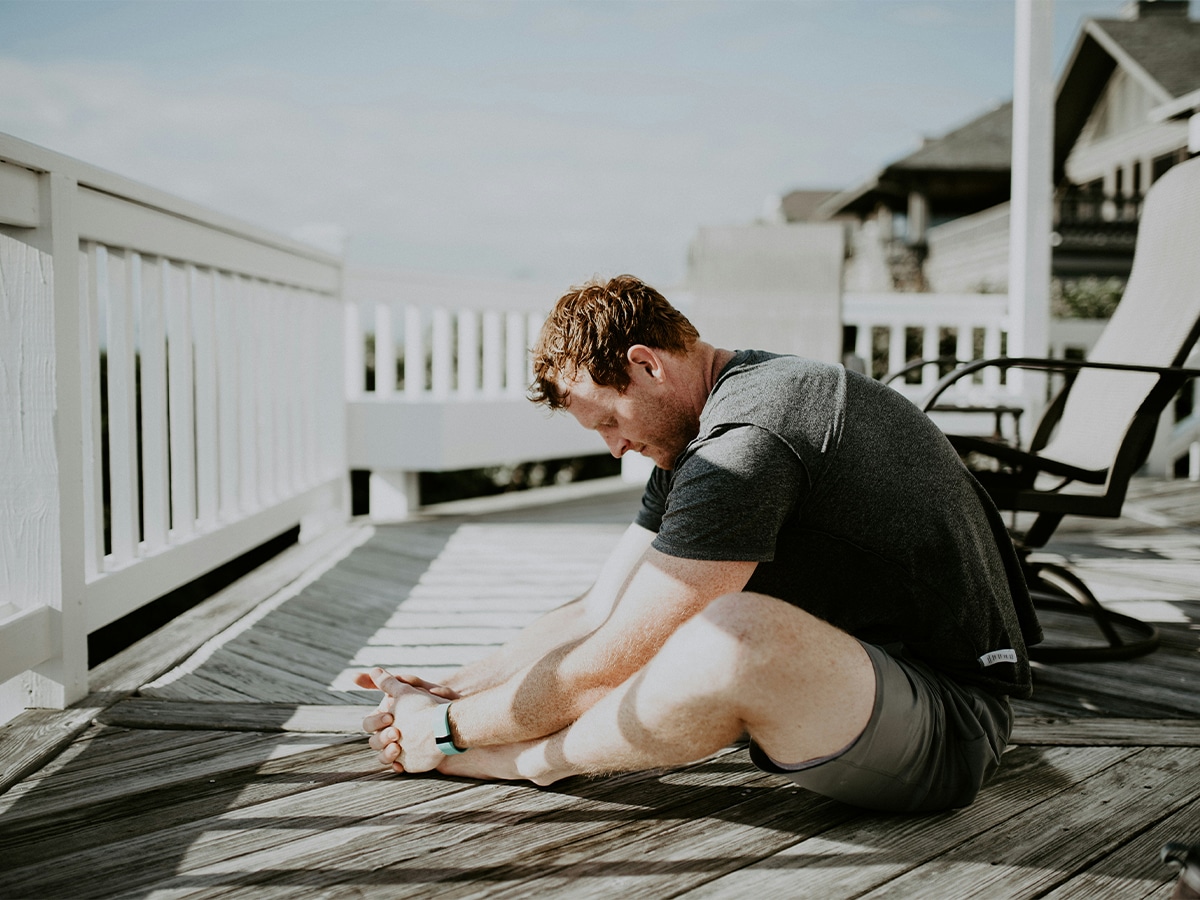
Expert Reveals What Taking a Week Off From Working Out Does to Your Body

Published:
Readtime: 5 min
Every product is carefully selected by our editors and experts. If you buy from a link, we may earn a commission. Learn more. For more information on how we test products, click here.
If you’ve spent months in the gym, weighing your chicken breast and measuring out macros like an obsessed fanatic, taking a week off might feel a little like cheating. Travel, unexpected life events or stress can throw out your daily routine and more often than not, fitness is the first thing to go. It’s an unavoidable fact of life, but it is worth understanding what happens to your body when you take a break from the gym.
When you have limited access to the gym or traditional strength training equipment, muscle growth and stimulation can be challenging. While certain cardiovascular and bodyweight exercises, such as running or push-ups are always an option, nothing compares to strapping on a triple-plate bar and tearing some muscle fibres. As a result, you can find yourself falling into a sluggish pattern of eating, sleeping, working and repeating; but while a few extra pounds isn’t great for the ego, the implications could be far worse.

Use It or Lose It
According to a 2013 study by the Sport Performance Research Institute New Zealand, athletes start to lose their muscle strength in about three weeks if they’re not working out, and it’s even faster for the average Joe. The study also revealed that athletes typically lose less overall muscle strength during a break than nonathletes. According to Michelle Furniss, qualified group fitness instructor and chief commercial officer of Health & Fitness, ANZ at Xplor Technologies, a change in routine can throw athletes of all experience levels out of kilter.
“In a physical sense, from as little as two weeks, you can begin to lose aerobic and cardiovascular fitness, and within two to four weeks, muscle tone also starts to decline,” the fitness expert tells me.
It’s not the only concern. While on one side, the routine of fitness and physical exercise is easy to slip out of, the consumption of food and intake of nutrients we’re used to consuming is a habit that is hard to shake. Instances where we note a decrease in one and maintenance in the other are cause for concern.
“As you continue to consume the same amount of calories without working out, weight gain is also a concern and may become more visible,” Furniss says. “Not staying physically fit may further increase your risk of health issues including cardiovascular disease and high blood pressure.”

The Mental Game
While it’s no surprise that taking time off from the gym won’t help your waistband, the cocktail of binge eating and sedentary lifestyle factors can lead to more lasting impacts. A wider study by the University of Adelaide found that ceasing exercise led to an immediate change in well-being.
“In some cases, ceasing this amount of exercise induced significant increases in depressive symptoms after just three days,” Professor Bernhard Baune, Head of Psychiatry at the University of Adelaide and senior author on the paper, told Science Daily. Fitness expert Furniss reveals that bad habits are often the precursor for wider health concerns and it’s important to prioritise physical health wherever possible.
“While there is nothing more demotivating than your favourite boxing class no longer being accessible, it is really important for your mind and body to continue to stay active where you can,” she said.
In addition to the physical components of exercising, it’s important to not forget the mental benefits of exercising. Depression and anxiety, as well as other mental illnesses, can be a symptom of not looking after your body and staying active.”

How to Stay Motivated
With that in mind, fitness expert Michelle Furniss shared her thoughts on staying motivated to work out during difficult periods. Here are her simple steps for home workouts.
- Prioritise Your Fitness – Start by putting it in your calendar. Set aside an hour during your day, and commit to it. Try and keep this at a consistent time across the week if possible, so it becomes a more integral part of your routine.
- Accountability – If possible, find a buddy you can exercise with. It can be a lot more motivating to exercise with someone and there’s nothing like a friend or partner to hold you accountable. If not, find a killer playlist and motivate yourself with music.
- Make Time for Rest – Rest days are just as important as your ‘on’ days. But if you find your motivation waning, and you’re considering taking a few extra rest days than, say, the week before, remember how good you felt after that last workout. Visualise that sense of accomplishment, pop on your runners and go. You’ll feel incredibly satisfied after, I guarantee it!
- Switch It Up – Keep it fun. Try to vary your workouts so things stay fresh and don’t become laborious.
- Start Simple – In my eyes, the best exercise routine is the one you do! The second best is one that works all muscle groups, both equal and opposing. Think back and chest, biceps and triceps, quads and hamstrings.
Citations
- The development, retention and decay rates of strength and power in elite rugby union, rugby league and American football: a systematic review (2013) Daniel Travis McMaster 1, Nicholas Gill, John Cronin, Michael McGuigan: https://pubmed.ncbi.nlm.nih.gov/23529287/
- University of Adelaide. “Stopping exercise can increase symptoms of depression.” ScienceDaily. ScienceDaily, 22 March 2018. <www.sciencedaily.com/releases/2018/03/180322112720.htm>.





























Comments
We love hearing from you. or to leave a comment.